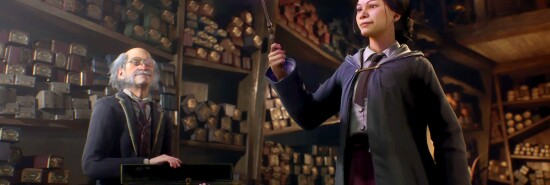
Hogwarts hysteria
Madeline Fry Schultz
When Hogwarts Legacy comes out later this week, Harry Potter fans and gamers alike will enjoy an action role-playing game set in J.K. Rowling’s Wizarding World. But don’t remind them about Rowling. Then they’ll have to remember to feel bad about enjoying a harmless video game.
Writing for the technology blog Engadget, one author defends her decision to play the game, writing: “The author wasn’t involved in the creation of Hogwarts Legacy and her status as the world’s richest author won’t change regardless of the game’s success.” Despite being a bisexual woman with “a big ol’ Harry Potter tattoo next to an anti-TERF tattoo,” she fears pushback, adding that “it’s slightly frightening” to write about wanting to play the game, “knowing the condemnation I could receive … from people I actually care about.”
Gamers across the globe are now either similarly hand-wringing over their decision to play the game or, in a greater show of moral superiority, boycotting it altogether to protest Rowling’s “transphobic” views.
No matter that everyone involved in this game has done their best to ensure that they’re not labeled as transphobic — from Warner Bros. emphasizing that Rowling “is not directly involved” in Hogwarts Legacy to game developers including a transgender character. Everyone else can’t be woke enough to atone for Rowling’s sins. She must do so herself.
The problem for outraged gamers appears to be twofold: Rowling will benefit financially from the game’s sales, and it will keep her in the news cycle, allowing her fame to grow as she espouses her “transphobic views.” (Never mind that the Hogwarts Legacy reviews that feature Rowling prominently are the ones supposedly bidding her out of the spotlight.)
An article from the website GamesHub declares, “Hogwarts Legacy does not deserve to be reviewed on its own merits.”
“Whether or not we want to admit it,” the piece reads, “it is impossible to talk positively about Hogwarts Legacy without harming a community of human beings.”
At the entertainment website Polygon, one author writes about not buying the new game, saying that “Hogwarts Legacy is tainted by J.K. Rowling’s transphobic views.”
“Rowling is not just ‘a transphobe’ — she’s the transphobe-in-chief, the respectable face of hate, the celebrity representative of transphobia,” the writer says. “As the author of Harry Potter, she’s one of the most well-known public figures in the world. Anything that keeps her in the press also keeps her transphobia in the press, and leads to further distress for trans people.”
From all of this, you would think Rowling was akin to some misogynistic internet personality or an antisemitic basement dweller. In reality, the author has merely said out loud what most people believe: that “women” should be a protected class regardless of who says they want in and that you cannot change your sex, no matter how much you might like to.
As the millionaire author of a beloved children’s franchise, Rowling is fortunately uncancelable. But imagine what these headlines do to people who don’t have Rowling’s power and influence — people who may be cowed into apologizing to their friends for playing the game or those who worry about losing their jobs after being slapped with the label of “transphobe.”
This kind of thing is bad for free discourse, and it’s another concerning reminder that proponents of radical gender ideology want to shut the rest of us out.
